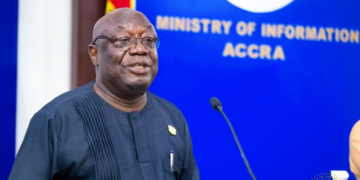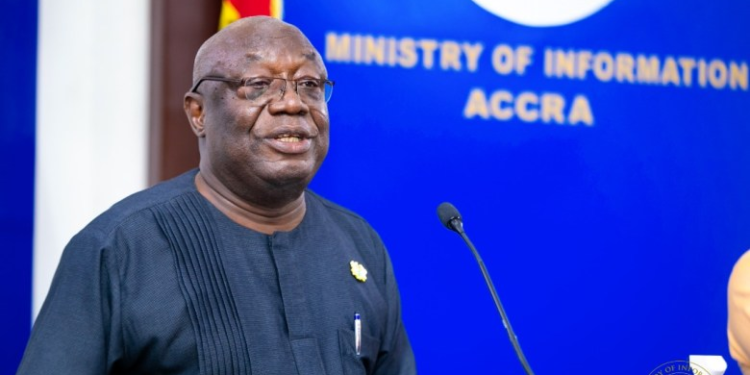According to the Minister of Environment, Science, Technology and Innovation (MESTI), Dr Kwaku Afriyie, Cabinet has officially granted approval to a comprehensive national space policy that will provide a framework for the use of space science and technology for sustainable development.
To ensure seamless implementation, the policy will serve as a unifying mechanism, harmonizing the access and utilization of space data across various governmental entities, including ministries, departments, and agencies (MDAs).
During a “Press Briefing” series held in Accra, Dr. Kwaku Afriyie, the Minister of Environment, Science, Technology, and Innovation (MESTI), emphasized the significance of this milestone in the nation’s overall developmental trajectory. The approval of this policy signals a remarkable advancement and reinforces the government’s commitment to leveraging cutting-edge scientific endeavors to drive progress and prosperity.
“Currently, there is no coordination in the way MDAs access data from entities which provide space data, and we do not even consider value for money,” he said.
Dr Afriyie added that as part of measures to leverage space technology, MESTI was currently working with relevant ministries and the private sector to transform the Ghana Space Science and Technology Institute (GSSTI) into a space agency to coordinate the growth of human capital, infrastructure and space science.
The minister said that although the government had frozen the establishment of agencies because of the financial burden involved, it was important to consider space agency as a special case.
“I am pleading for exemption for us to establish the space agency because the GSSTI has the needed infrastructure, so there will be zero financial burden on the government. If we do not do it, the country will rather incur losses,” he said.
He also said that the ministry had completed the review of a National Science, Technology and Innovation (STI) policy with technical and financial support from the UN Educational, Scientific and Cultural Organisation (UNESCO).
And in partnership with the UN Office for Disarmament Affairs (UNODA), Dr Afriyie said the ministry was reviewing a Biological and Toxin Weapons Bill which sought to implement a 1972 Convention on the prohibition of the development, production and stockpiling of bacteriological (Biological) and toxin weapons, and on their destruction.
He also said that an Environmental Protection Authority (EPA) Bill meant to change the status of the Environmental Protection Agency (EPA) to an authority had been drafted.

































